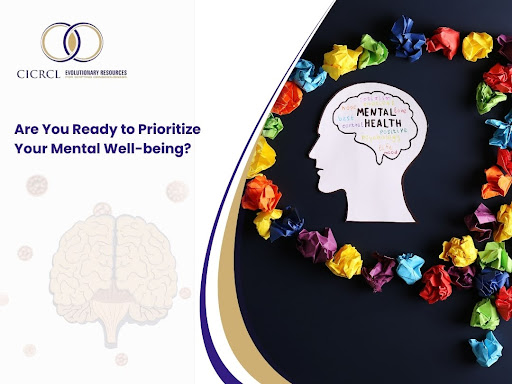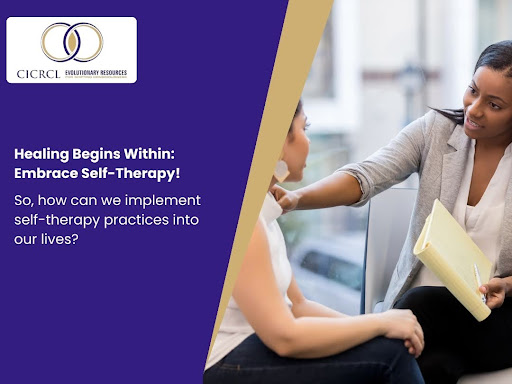In a world where stress, anxiety, and mental health challenges are prevalent, the concept of self-therapy has emerged as a powerful tool for personal growth and healing. Self-therapy, also known as self-care therapy, encompasses a range of practices aimed at nurturing our mental, emotional, and spiritual well-being. Unlike traditional therapy where individuals seek guidance from a professional, self-therapy empowers individuals to become their healers, equipped with the knowledge and tools necessary to navigate life’s challenges.

Importance of Self-Therapy:
The importance of self-therapy cannot be overstated in today’s fast-paced and often overwhelming world. By engaging in self-therapy practices, individuals can gain a deeper understanding of themselves, cultivate resilience, and develop coping mechanisms to manage stress and adversity. Self-therapy promotes self-awareness, self-compassion, and personal growth, ultimately leading to greater overall well-being. Moreover,self-care therapy is accessible and flexible, allowing individuals to integrate self-care practices into their daily lives in a way that suits their unique needs and preferences.
Signs That We Need Self-Therapy:
Recognizing when we need self-therapy is the first step towards prioritizing our mental and emotional well-being. While the signs may vary from person to person, some common indicators suggest the need for self-therapy:
- Persistent Feelings of Stress or Anxiety: If you find yourself constantly feeling overwhelmed, anxious, or stressed out, it may be a sign that you could benefit from self-therapy practices to manage these emotions more effectively.
- Difficulty Coping with Life’s Challenges: If you find it challenging to cope with the ups and downs of life, whether it’s relationship issues, work-related stress, or other sources of adversity, self-therapy can provide valuable tools for building resilience and navigating difficult situations.
- Struggling with Self-Identity or Self-Worth: If you’re grappling with issues related to self-identity, self-esteem, or self-worth, self-therapy can help you explore these aspects of yourself more deeply and cultivate a greater sense of self-acceptance and self-love.
- Unhealthy Coping Mechanisms:
- If you’re turning to bad habits like drinking or overeating, or avoiding problems to deal with tough feelings, self-therapy can give you better ways to handle stress and discomfort, leading to a happier and healthier life.
- Feeling Disconnected or Unfulfilled: If you’re feeling disconnected from yourself or others, or if you’re struggling to find meaning and purpose in your life, self-therapy practices can help you reconnect with your innermost desires and values and live a more fulfilling life.
Incorporating self-therapy into your self-care routine can be a transformative journey towards greater self-awareness, resilience, and inner peace. By recognizing the signs that indicate the need for self-therapy and understanding its importance in nurturing our mental and emotional well-being, you can embark on a path of self-discovery and self-healing.

Healing Begins Within: Embrace Self-Therapy!
So, how can we implement self-therapy practices into our lives?
Let’s delve into some practical steps that anyone can take to incorporate self-therapy into their self-care routine.
- Self-Reflection: Schedule frequent reflection time for yourself. This could involve journaling, meditation, or simply taking a quiet moment to check in with yourself. Reflect on your thoughts, feelings, and behaviors, and consider how they may be impacting your overall well-being. Self-reflection is a cornerstone of self-therapy, allowing you to gain deeper insights into yourself and your needs.
- Identify Triggers: Take note of any recurring patterns or triggers that contribute to feelings of stress or anxiety. These could be specific situations, environments, or even internal thoughts and beliefs. By identifying your triggers, you can begin to develop strategies for managing them more effectively. This awareness is essential for effective self-therapy.
- Practice Self-Compassion: Cultivate a sense of self-compassion and kindness towards yourself. Treat yourself with the same warmth and understanding that you would offer to a close friend facing similar struggles. Self-compassion is a fundamental aspect of self-therapy, fostering resilience and emotional well-being.
- Establish Healthy Habits: Prioritize self-care activities that nourish your mind, body, and soul. This could include regular exercise, nutritious eating, adequate sleep, and engaging in activities that bring you joy and fulfillment. Establishing healthy habits lays the foundation for effective self-therapy, promoting overall well-being.
- Seek Support: When you need help, don’t hesitate to ask for it. Whether it’s confiding in a trusted friend or family member, joining a support group, or seeking professional guidance, there is no shame in asking for help. Self-therapy doesn’t mean going it alone – it’s about utilizing resources and support systems to aid in your healing journey.
- Practice Self-Expression: Find healthy outlets for self-expression, such as art, music, writing, or creative activities. Constructively expressing your thoughts and emotions can be incredibly therapeutic and cathartic. Don’t be afraid to explore different forms of self-expression as part of your self-therapy journey.
- Stay Consistent: Like any form of therapy, self-therapy requires consistency and commitment. Make self-care a priority in your daily life, carving out dedicated time for self-therapy practices. Remember that progress may be gradual, but every small step toward self-care counts.
- Educate Yourself: Start by educating yourself about self-therapy techniques and principles. There are numerous resources available, from self-help books to online courses, that can provide valuable insights into various self-therapy modalities.
Consider reading a self-therapy book or exploring reputable websites dedicated to self-care therapy:
Introducing:
| What Is Your PsyQ? Increasing Your Psychological Intelligence Through Self-Therapy: |
In the pursuit of enhancing your psychological intelligence and embracing self-therapy practices, I am thrilled to introduce my book, “What Is Your PsyQ? Increasing Your Psychological Intelligence Through Self-Therapy.” This self-therapy book is designed to empower readers with practical insights, tools, and exercises to deepen their self-awareness, foster emotional resilience, and cultivate personal growth.
Why You Should Buy “What Is Your PsyQ? Increasing Your Psychological Intelligence Through Self-Therapy?”:
Why You Should Buy “What Is Your PsyQ?”:
- Practical Guidance: Discover actionable techniques and exercises to implement self-therapy practices into your daily life.
- Empowering Self-Discovery: Explore your thoughts, feelings, and beliefs with engaging exercises that encourage introspection and self-reflection.
- Evidence-Based Insights: Benefit from a scientifically sound approach grounded in research and proven principles of psychology.
- Supportive Resources: Receive supportive guidance and tools to navigate life’s challenges with resilience and clarity.
Don’t miss out on the opportunity to enhance your self-care and emotional well-being. Order your copy of “What Is Your PsyQ?” today and get started on a journey towards greater self-awareness and personal growth.
Click here to buy now and start your journey towards psychological intelligence:
Conclusion:
Incorporating self-therapy practices into your self-care routine is a powerful investment in your mental and emotional well-being. By recognizing the signs that indicate a need for self-care therapy, embracing the importance of self-awareness and personal growth, and exploring resources like “What Is Your PsyQ?”, you can embark on a transformative journey towards increased psychological intelligence and inner fulfillment. Take the first step towards enhancing your self-care and emotional resilience today.
